It is the viral British plushie brand which has won the hearts of the royal family‘s youngest generation – as well as proving a magnet for thieves.
Prince William has described Jellycat’s sought-after soft toys are his children’s ‘currency’, while rare designs can sell for thousands of pounds online.
But the London-based brand’s decision to ban around 100 independent retailers from stocking the toys threatens to damage its cuddly reputation, according to marketing experts.
Among stockists who have been told Jellycat will no longer supply them is children’s clothing shop Puddleducks.
It has been trading for 34 years in the village of Diggle near Oldham, selling a Jellycat range for almost two decades.
Owner Alison McCabe regularly places orders with the firm worth thousands of pounds, with the brand representing nearly one-third of its sales.
So she was shocked to receive an email from Jellycat containing details of what it described as ‘the next stage in our brand elevation strategy’.
To provide a ‘great experience’ for ‘every customer’ the firm’s email said it would now be working with ‘over 1,200 independent retailers across the UK’.
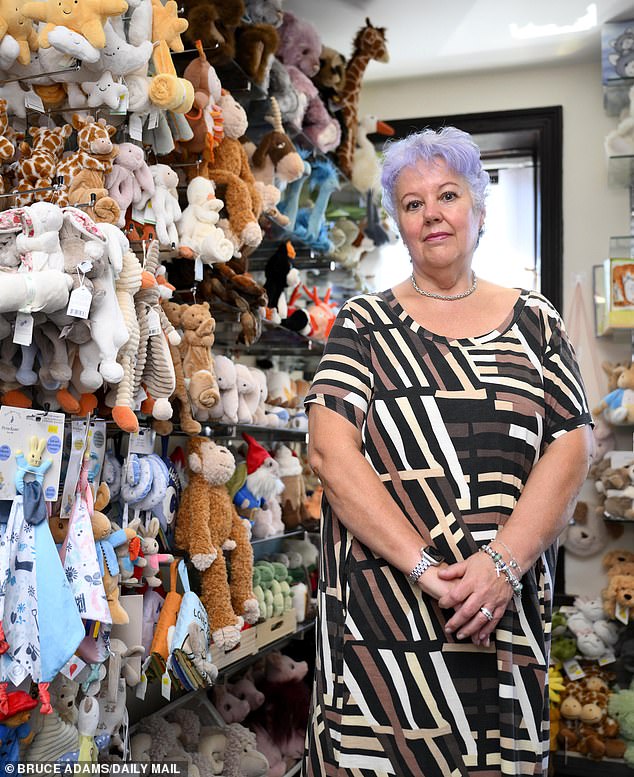
Alison McCabe was shocked to be informed that Jellycat would no longer be supplying her boutique in Diggle, near Oldham, after a 19-year relation as part of its ‘brand elevation strategy’
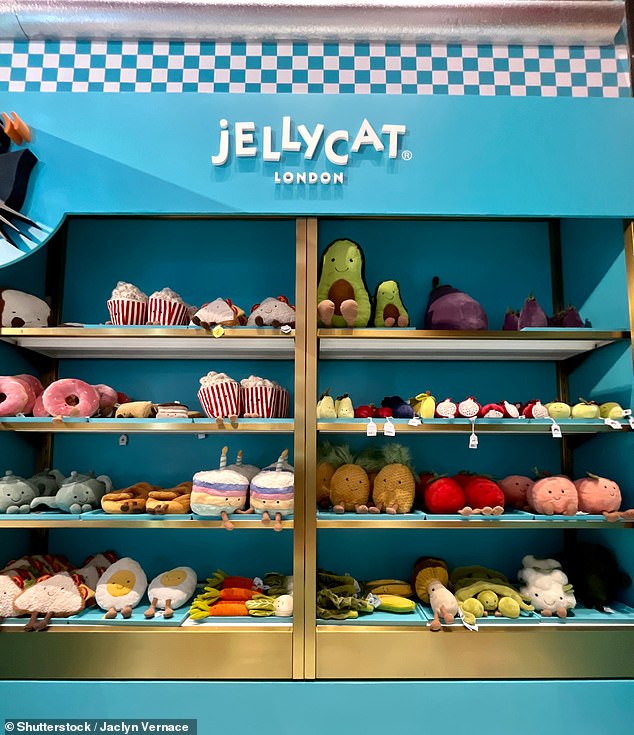
As well as classic cuddly animals, Jellycat stocks anything from plush teapots to toast slices and even shamrocks
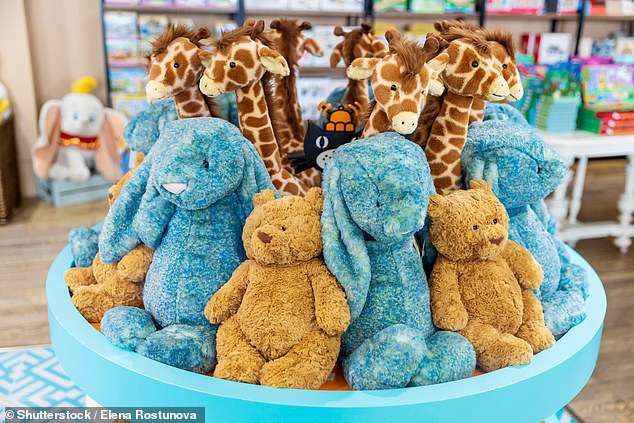
Displays of sought-after Jellycat toys will vanish from around 100 independent stores across the UK
Devastatingly it went on: ‘Sadly, we’re not able to extend this support to everyone.’
The firm said it understood the decision to end its relationship with Puddleducks would be ‘disappointing news’ but that it was ‘final and not open to negotiation.’
‘I couldn’t believe what I was reading,’ Ms McCabe told the Daily Mail.
‘We’ve stocked Jellycat for 19 years, before all the hype started – I just thought they were really nice products.
‘So it really hurts to be told we’re not good enough for them any more.
‘There’s been no communication at all.
‘If Jellycat wanted us to display the toys in a different way we could have had a conversation.
‘Instead it’s just “thank you and goodbye” – it’s ridiculous.
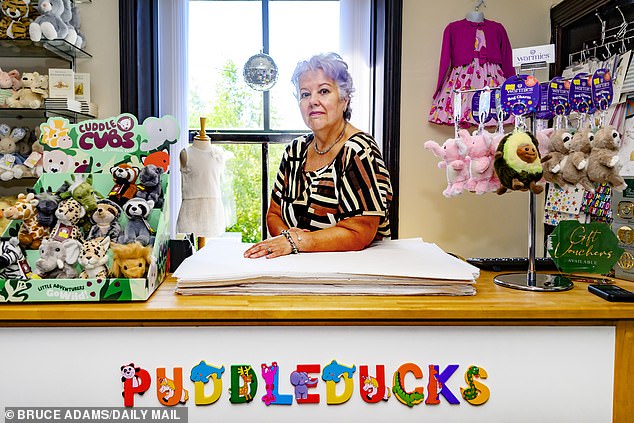
Alison McCabe, pictured at her Puddleducks store in Diggle, said it ‘hurts’ to be told by Jellycat that her business is ‘not good enough for them’ after promoting the brand for almost two decades
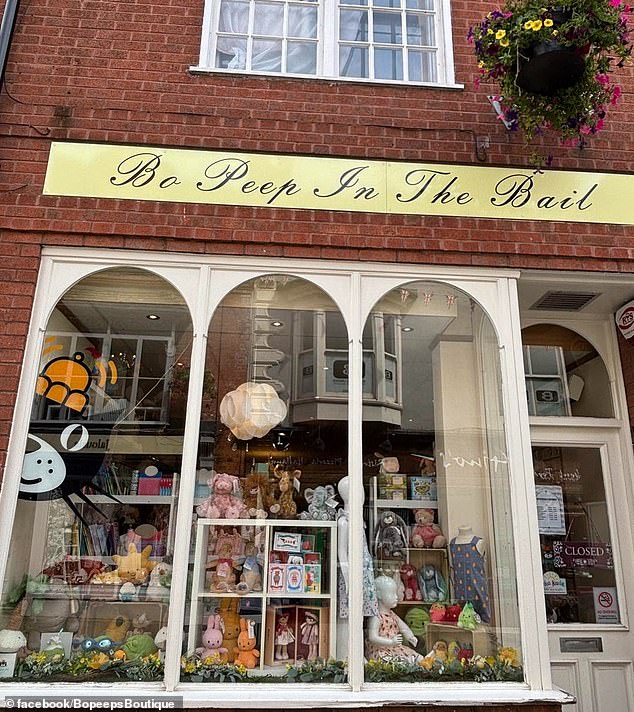
Bo Peep Boutique in Lincoln said it was given ‘no ifs or buts, no guidance, no reasons’ for why Jellycat was pulling the plug
‘It’s small retailers like this which have got Jellycat where they are now.’
In total Jellycat has pulled the plug on around one in 12 stockists.
They also include Bo Peep Boutique in Lincoln, which said on social media it was given ‘no ifs or buts, no guidance, no reasons’.
Meanwhile Rumours gift shop in Whitby, North Yorkshire announced the ‘sad news’ on Facebook.
‘This is obviously extremely disappointing, having supported the company for over two decades, since they first started up,’ it wrote.
‘It’s a sad day that we can no longer be referred to as “The Jellycat Shop”.’
As the resulting backlash spread through social media – where Jellycat has a strong presence – the firm responded to a string of negative ratings on Trustpilot by suspending reviews on the site.
Professor Anthony Patterson, from Lancaster University Management School’s department of marketing, said Jellycat’s decision to slash its stockists was ‘a clever way to maintain exclusivity’ – but risked leading to ‘customer frustration’.
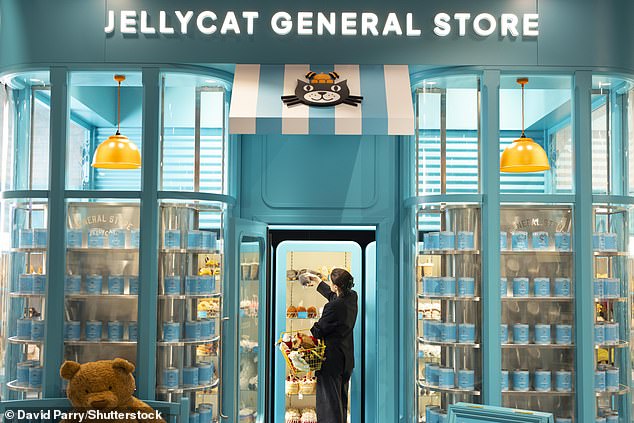
Jellycat’s store at Selfridges in Birmingham was billed as the largest of its kind
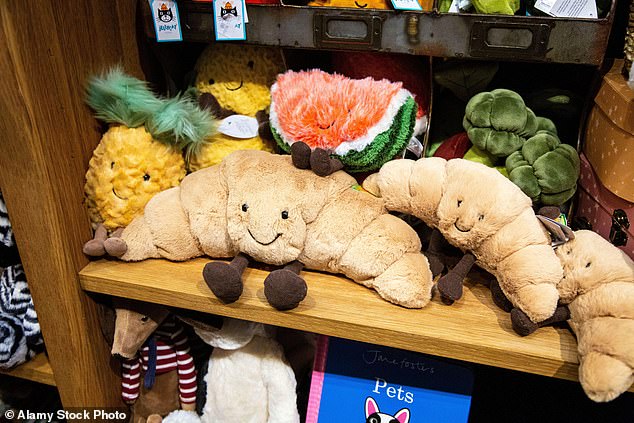
Plush croissants and fruit at a Jellycat store display
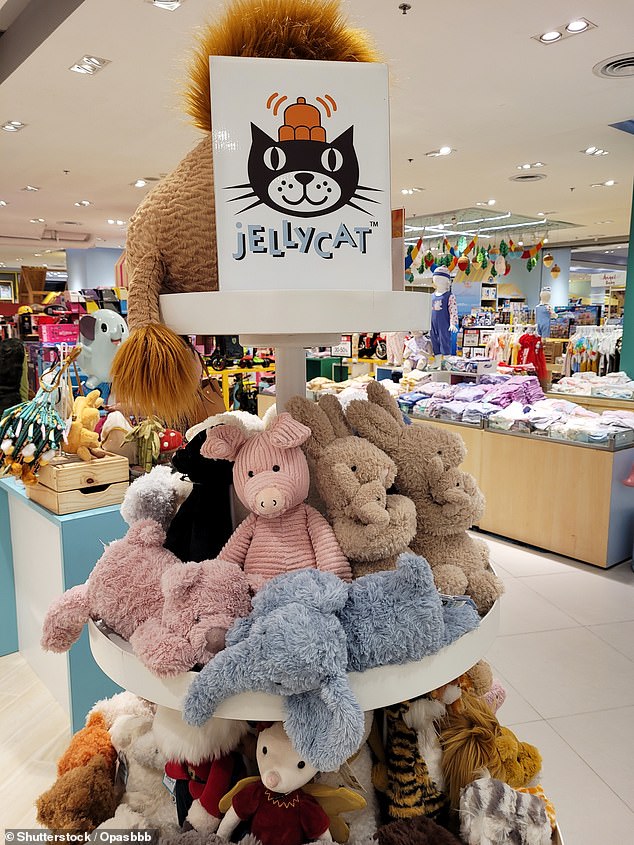
Following a backlash, Jellycat says it is ‘very sorry’ for the ‘hurt’ its cull has caused retailers and customers – but insists it will be able to provide a ‘better service’
‘The real casualties here are the independent retailers who’ve faithfully stocked Jellycat for years, building customer relationships around the brand, only to find themselves suddenly cut loose in favour of “selective partnerships”,’ he added.
‘For smaller toy shops that relied heavily on Jellycat sales, losing such a significant revenue stream could be the difference between staying open and closing their doors permanently.’
Influencer marketing consultant Scott Guthrie said Jellycat would enjoy higher profit margins by directing more customers online – but risked damaging its brand.
‘Jellycat toy sales have surged in part thanks to the sense of community it has fostered, including Gen Z posting TikToks of their collections and love for the brand,’ he said.
‘The break with stockists – many who have long supported the brand – may negatively impact this sense of community, with a potential knock-on effect of denting Jellycat’s brand equity.’
Jellycat insists it is a ‘big supporter’ of small businesses and stresses that 1,200 independent stores will continue stocking its toys.
Initially it said they had been ‘carefully’ selected for the ‘amazing in-store experience that they lovingly create’, while saying it wished the shops on which it had pulled the plug ‘all the best for the future’.
However as the furore escalated, it yesterday shifted its position on the cull, saying: ‘We are very sorry about this and the hurt it has caused for those retailers and their customers.’
But it insisted cutting around 100 stockists would help it ‘give better service’ to those that survived the cutback, and therefore help customers.
‘We are also increasing supply as fast as we can without compromising our high quality and production standards,’ it added in a statement.












